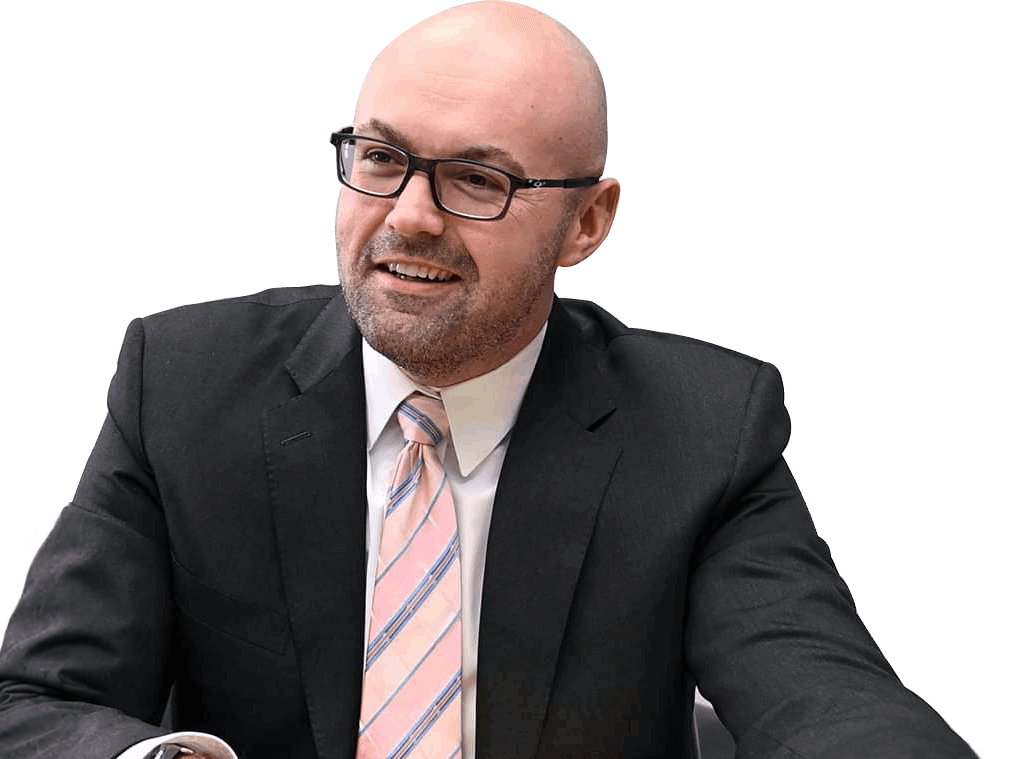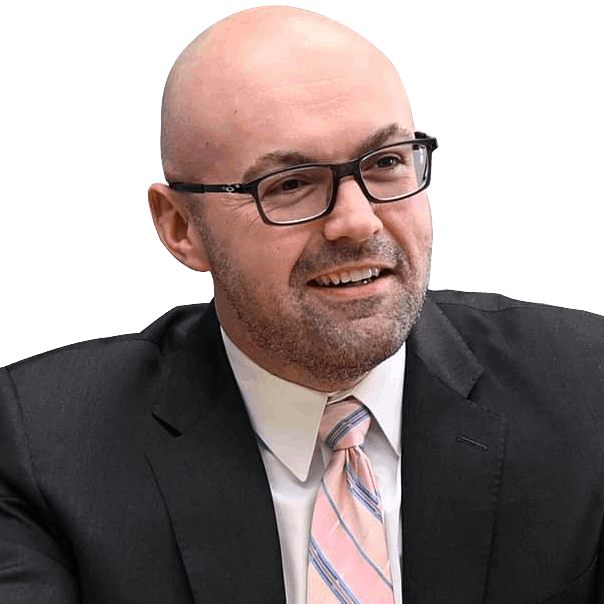Lake View, Chicago residents depend on top-tier hospitals—such as Rush University Medical Center on West Harrison, Northwestern Memorial Hospital’s outpatient campus on Lincoln Avenue, and Swedish Covenant Hospital on Addison Street—for emergency treatment, complex surgeries, and advanced diagnostics. Yet even these renowned institutions can succumb to overcrowded emergency departments, delayed lab results, and equipment malfunctions in high-traffic imaging suites. The neighborhood’s busy Armitage Avenue boutique district, Cubs game crowds at Wrigley Field, and L train delays on Sheffield Avenue all contribute to extended EMS response times and strained triage systems. When routine care goes catastrophically wrong—whether due to misread X-rays, rushed discharges, or understaffed night shifts—patients and families face severe physical harm, mounting medical bills, and profound emotional distress. Chicago Injury Lawyer represents Lake View victims of systemic hospital errors, leveraging deep neighborhood insight and tenacious advocacy to hold negligent providers fully accountable.
Call us now at 312-261-5656 for a free, no-obligation consultation, available 24/7. With our no-fee-unless-we-win policy, you can focus on your recovery while we handle the rest.
Why Hospital Negligence Happens in Lake View, Chicago, IL
Several interrelated failures contribute to avoidable medical harm in Lake View’s healthcare network:
- Staffing shortages during peak event nights—when Wrigley Field draws tens of thousands—and weekends can leave ICU and ER units under-supervised, causing early warning signs (e.g., sudden blood-pressure drops or evolving sepsis symptoms) to go unnoticed.
- Interdepartmental communication lapses, such as misrouted lab reports between Rush’s Armitage outpatient clinic and its main campus, may delay critical treatments for stroke or heart attack.
- Protocol breakdowns in surgical sterilization—where rapid instrument turnover in outpatient surgery centers leads to skipped cleaning cycles—heighten the risk of hospital-acquired infections like MRSA or C. difficile.
- Overreliance on electronic health records (EHRs) without robust manual double-checks can produce transcription errors—incorrect medication dosages, missed allergy alerts, or misplaced imaging orders—especially during busy shift changes.
- Equipment maintenance delays at high-volume centers can defer routine calibration of ventilators, infusion pumps, and cardiac monitors, increasing the chance of undetected malfunctions during life-sustaining care.
- Language and cultural barriers in Lake View’s diverse population—including sizeable LGBTQ, Polish-American, and immigrant communities—can lead to misunderstandings of consent forms, discharge instructions, or symptom descriptions.
When these failures cause serious injury, Illinois medical malpractice law provides a path to recover compensation for medical expenses, lost income, and pain and suffering.
Types of Hospital Negligence Cases
Our attorneys handle a broad spectrum of hospital negligence claims in Lake View, including:
- Hospital-acquired infections: Sepsis, pneumonia, or bloodstream infections from contaminated instruments or lapses in hand-hygiene protocols.
- Medication errors and charting mistakes: Overdoses, allergic reactions, or missed allergy warnings due to flawed EHR entries or manual transcription oversights.
- Misdiagnoses or delayed emergency treatment: Failure to recognize heart attack, stroke, sepsis, or pulmonary embolism symptoms in a timely manner, resulting in irreversible organ damage or neurological deficits.
- Surgical errors: Wrong-site operations, retained foreign objects, anesthesia dosing mishaps, and instrument malfunctions in both inpatient operating rooms and outpatient surgical centers.
- Diagnostic testing errors: Misread X-rays, CT scans, MRIs, or lab results leading to inappropriate care plans and worsened patient outcomes.
- Patient handling injuries: Falls from improperly maintained beds or faulty transfer equipment cause fractures, head trauma, or pressure ulcers.
- Informed consent failures: Insufficient explanation of procedural risks—especially for complex cardiac catheterizations or neurosurgeries—undermines a patient’s ability to make truly informed healthcare decisions.
Severe Injuries Caused by Hospital Malpractice
Hospital negligence can inflict life-altering harm that reverberates across every facet of a victim’s life:
- Sepsis and bloodstream infections necessitate multiple revision surgeries, prolonged ICU stays, and long-term antibiotic regimens.
- Permanent brain damage from delayed stroke intervention or anesthesia complications, leading to cognitive impairment and loss of independence.
- Wrongful amputations due to unrecognized compartment syndrome or vascular injuries requiring prosthetics and lifelong rehabilitation.
- Internal organ perforations during minimally invasive procedures, sometimes undetected until critical complications emerge.
- Fatal outcomes when preventable errors deprive patients of timely, life-saving treatment.
Victims often require multiple revision surgeries, extensive rehabilitation, and ongoing care costs. For injuries sustained during surgery, contact our surgery malpractice attorney to discuss pursuing full compensation for your catastrophic losses.
Your Legal Rights After Hospital Negligence in Lake View, Chicago, IL
Under Illinois law, you generally have two years from the date you discover the injury to file a medical malpractice claim, though exceptions (such as minors or latent-injury cases) may extend this deadline. Lake View claims are filed in the Cook County Circuit Court, typically at the Daley Center in downtown Chicago. Our team will:
- Obtain and review your complete medical records, including ER logs, surgical and anesthesia reports, nursing charts, diagnostic imaging, and any internal incident investigations from Rush, Northwestern, or Swedish Covenant.
- Retain leading medical experts—board-certified physicians and specialists—to evaluate whether your care deviated from accepted standards.
- Prepare the mandatory certificate of merit, signed by a qualified physician, affirming that your claim has merit under Illinois malpractice statutes.
- Negotiate assertively with hospital defense teams and insurers to secure fair settlements.
- Advocate zealously in court if litigation becomes necessary, ensuring your full damages—past and future medical expenses, lost wages, and non-economic losses—are fully presented.
For complex diagnostic cases—where earlier recognition of symptoms could have prevented harm—consult our diagnostic error attorney for specialized representation in proving causation and liability.
What to Do If You Suspect Hospital Negligence
Taking prompt action preserves critical evidence and strengthens your claim:
- Request your full medical records in writing from the hospital’s Health Information Management department, covering all physician, nursing, and diagnostic reports.
- File a formal complaint with the Illinois Department of Public Health to document systemic safety issues and trigger regulatory review.
- Keep a detailed injury journal, logging dates, times, symptoms, staff interactions, and any lapses in care or communication.
- Photograph visible injuries—such as surgical incisions, pressure ulcers, or bruises—and retain all physical evidence: dressings, discharge instructions, and medical devices.
- Schedule a free consultation with an experienced malpractice attorney to evaluate your case, meet filing deadlines, and preserve witness statements.
Why Choose Our Lake View, Chicago, IL Hospital Negligence Lawyers
Pursuing a claim against major Chicago hospitals requires both legal expertise and hyper-local insight. Our firm offers:
- Proven institutional liability track record, with multi-million-dollar verdicts and settlements against Cook County hospitals.
- Deep familiarity with Lake View healthcare dynamics, including event-driven EMS surges for Cubs games and concert crowds.
- Comprehensive case management, handling expert retention, depositions, and settlement negotiations so you can focus on recovery.
- Contingency-fee arrangements, meaning no attorneys’ fees unless we recover compensation on your behalf—our success depends on yours.
- Compassionate, client-centered advocacy, recognizing the physical, financial, and emotional burdens medical negligence imposes.
- Multilingual support, offering guidance in Spanish, Polish, and other languages common in Lake View’s diverse community.
EXCELLENTTrustindex verifies that the original source of the review is Google. I can't stress enough how grateful I am that we hired Paul Marriett to help us with our case. His communication was not only timely and thorough but also understandable. He did a phenomenal job guiding us through the process and preparing us for the courtroom, which put our minds at ease. Once our hearing came, he did his job flawlessly and won our case. Additionally, he was quite pleasant to speak with when our judge was behind schedule and while the court was in recess. I highly recommend him to anyone needing an attorney and will reach out again in the future should we ever need representation.Posted onTrustindex verifies that the original source of the review is Google. Very professional and helpful! I would recommend to all my friends and family to hire him. He was eager to know the circumstances of my case even before I hired him. I did contact other lawyers and offices, but none came close to the comfort I felt while talking to Mr. Marriertt, I really felt like he cared about the situation I found myself in. He deserves 6 stars for going above and beyondPosted onTrustindex verifies that the original source of the review is Google. Paul helped me out with a traffic citation. The communication was great as he walked me through my options and what to expect with my court date and plea deal. 10/10 service. Highly recommended. Thanks again, Paul.Posted onTrustindex verifies that the original source of the review is Google. Paul was very professional, sharp dressed and clearly a notch above most in the courtroom. He understood my plight and refused to be bullied. Knows the law to a T....I'm keeping him on speed dial. I think u will trust him too.Posted onTrustindex verifies that the original source of the review is Google. BEYOND satisfied with the services & representation! The communication & efforts have been above & BEYOND! Amazing price as well for a minor traffic hiccup. 11/10 recommend & prefer this firm for any future occurrences!!! Very transparent, & puts in the effort to help you!!!Posted onTrustindex verifies that the original source of the review is Google. If you are needing a lawyer in Rockford or the surrounding areas this is the guy you need to get ahold of! Do not waste your time or money going to someone else.... From the very start Mr. Marriett was on top of his job. I called several lawyers before him and he was the first to thoroughly explain everything I needed to hear without even asking him to. The definition of a great lawyer. Each time we went to court he always let me know ahead of time either in person or via phone what the expectations or options would be going in. I highly recommend Paul Marriett if you are in need of a lawyer!Posted onTrustindex verifies that the original source of the review is Google. Explained everything well. Kept us informed. I'm glad we found him.Posted onTrustindex verifies that the original source of the review is Google. I am very late on sharing my feedback only because I’m google illiterate. Attorney Merriett did a very smart excellent job for me and not real expensive considering how stupid I was to get in trouble . Thank you! For all your professionalism! Bruce P.Posted onTrustindex verifies that the original source of the review is Google. Great service and a reliable lawyer. I'm glad we got him instead of getting anyone else. :)
Get Directions to Our Law Office
Visit us in Chicago for a free consultation
- Address: 101 N Wacker Drive, Suite 100B, Chicago, IL 60606 Get Directions
- Driving Directions: If you’re traveling from The Loop, head north on Wacker Drive. Our office is between Lake and Randolph Streets, easily accessible from I-90 and I-94.
- Parking Options: Convenient parking is available at nearby garages, such as the Wacker & Monroe Garage, and there are metered spaces along N Wacker Drive.
- Landmarks Nearby: Our office is just steps from the Chicago Riverwalk and close to The Loop, making it a convenient location for visitors.
Contact Us
Chicago Injury Lawyers
101 N Wacker Drive, Suite 100B
Chicago, IL 60606
Phone: (312) 261-5656
Email: contact@chicagoinjurylawyer.com
Hours: 24/7

Frequently Asked Questions About Hospital Negligence in Lake View, Chicago, IL
How do I file a formal complaint against a hospital in Lake View, Chicago, IL?
Submit a grievance to the Illinois Department of Public Health’s Division of Health Facilities and Programs online or by mail. You can also contact the patient relations or risk management office at Rush University Medical Center or Northwestern Memorial for their internal complaint procedures.
Where are malpractice lawsuits filed for Lake View residents?
Claims are filed in the Cook County Circuit Court at the Daley Center. After filing, your case proceeds through pre-trial motions, written discovery (including expert depositions), and may involve mandatory mediation before trial.
What medical records should I request to support my claim?
Obtain your full inpatient and outpatient files: ER and surgical notes, nursing and medication logs, diagnostic imaging (X-rays, CT scans, MRIs), lab results, discharge summaries, and any incident investigation reports.
Can a hospital’s accreditation status affect my negligence claim?
Yes. Accreditation by bodies like The Joint Commission mandates strict safety protocols. Demonstrating a facility’s failure—such as lapses in infection control or equipment maintenance—can significantly strengthen your claim.
Are expert witnesses available for Lake View cases?
Absolutely. We partner with board-certified physicians, nurses, and administrators from Cook County hospitals. Their testimony provides clear, compelling evidence of standard-of-care deviations.
What compensation can I expect for hospital negligence in Lake View, Chicago, IL?
Damages typically include past and future medical expenses, lost wages, rehabilitation and long-term care costs, and non-economic losses like pain and suffering. While Illinois caps certain economic awards, non-economic damages in malpractice remain uncapped, and local jury trends often influence settlement values.



